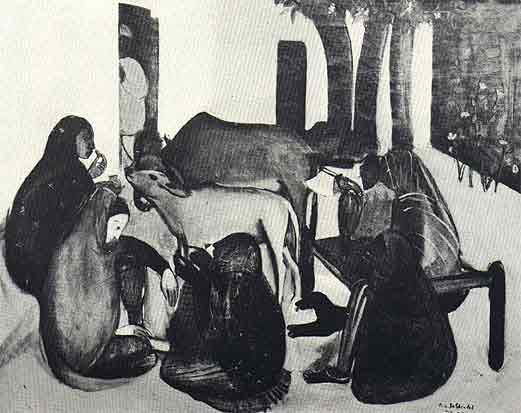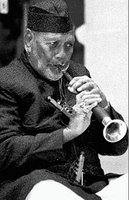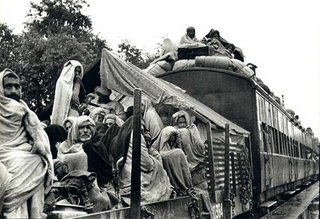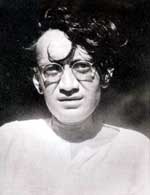
Tell me a good story badly and I will digest it even if I don’t feel satiated. But give me a superlative piece of writing with no visible story and you would find me flinching with unease and perhaps a good measure of blank expression. My expectations are simple and clear—in music I want good melody before I can appreciate the lyrics; in art, the painting or sculpture must speak to my heart before it teases my aesthetic sense; in writing, the story, despite being about imaginary characters and situations, would make me soar with rapture and sink with helplessness.
Now I am not talking about subtleties and subliminals here. Those aren't obscurities included just for effect and have been used even by the most ancient of storytellers. In more recent times, Of Mice and Men and The Truman Show come to the mind off the top of my head. Ah, the nuggets of treasure that lie hidden under the veneer of a well-told story. What joy it is to unearth those, even while you relish the story-on-surface itself.
From time to time, though, I run into discussions of things literary that make me balk and retreat to my low brow world. It’s not the content that intimidates me; more often, it’s the tone. It’s one that seeks to speak to the “discerning few,” not the general (read uninformed) reader. Similarly, literature that intends to use obscurity for the sake of it veers off my obtuse mind within minutes.
Two recent readings on the net seemed to resonate with these views of mine. Stephen Hines, a friend, whose agent is shopping his (brilliant) YA novel to prospective editors, wrote this in a recent blog post: “I've finished two novels so far. One is in the hands of my agent, and I'm currently about halfway done with the 3rd draft of the 2nd one. Before I got feedback from my test audience I started my 3rd novel. This 3rd novel was going to be artistic. It was going to kick off the training wheels of traditional writing techniques/plot structure and drag the young adult market (YA) kicking and screaming into deeper intellectual waters.” But the more he got into crafting this work of art, the more disenchanted he became with the whole act of writing. It soon seemed like dreaded work for him, something that hadn’t been the case with his earlier two novels. So he decided to halt art for a while and started writing a fourth novel, this one on vampires. He remains ambivalent about book # 3. “I'm still struggling with guilty feelings of "selling out" to the low expectations of the masses by going back to "just" being a storyteller instead of an artiste. Has too much book learnin' spoiled my perception of the value of just telling a damn good story with great thematic elements?” He ponders.
In the June 17 issue of Chicago Tribune, Julia Keller writes, at the cost of irritating “97 percent of the writers” and losing “a few precious friendships,” “…The arts often come swaddled in snobbery. There are critics, unfortunately, who encourage this snooty exclusivity: If you've not attended the symphony for a while, if your nightstand isn't stacked with literary classics, if you've let your Art Institute membership lapse, you're made to feel as if you really ought to just shuffle along to the ball game, beer in hand, and leave the highbrow stuff to the masters.”
I have let some expensive (by my standards) library memberships lapse and I don’t even have a nightstand. But a good story, whenever I get to read or see (as in cinema) one, does it for me. I feel no need to belong to any elitist group—as a writer or as a reader. I am but a part of the “masses” Stephen talks about. And like he says, my expectations are low. Low as in simple, not crass.
Perhaps there’s a reason why Aesop’s Fables, the Arabian Nights, and India’s epics, the Ramayana and the Mahabharata, continue to live on?
Image:
Sikh Heritage











